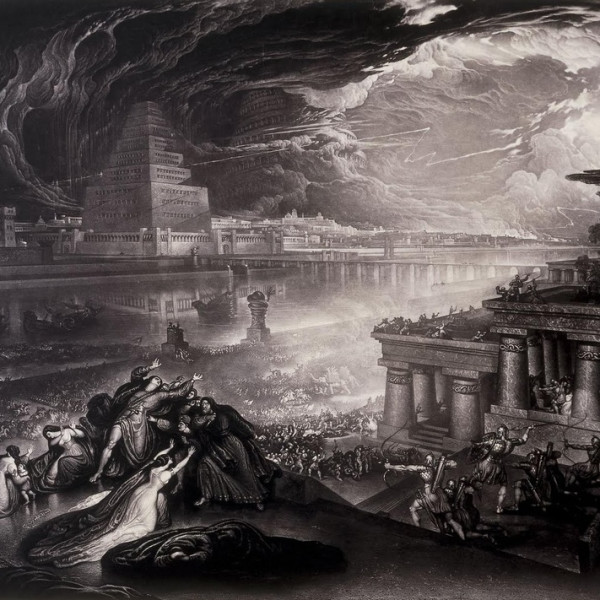In this series:
The Works of The Devil

For the past two weeks, I've been exploring the nature and rise of human evil. We're about to move into the New Testament, but before we do, I want to make sure I'm super clear as to the problems that were plaguing humanity, and the problems that Jesus believed he could solve.
Why?
Because how you understand Jesus and his context changes how you read the bible, and thus what you think Christianity is. If you believe Jesus mostly came to implement a new way to get to heaven after death, then a very large chunk of the bible is going to seem irrelevant. If you believe that Jesus was primarily interested in reforming our ethical system, then the scriptures are going to be very frustrating. But if you think that maybe Jesus (and Israel before him) were trying to offer up an alternative vision of humanity, a humanity “outside the power of the devil”, a humanity free to flourish in its identity as the image-bearers of God - then your entire interaction with scripture will be transformed. And you may discover a dynamic much more profound than religion.
So let's catalog the things we've been exploring.
First, we discussed how human consciousness created space for the awareness of our own mortality, how that awareness began to haunt us, and how it blossomed into an ever-present fear. This fear takes many forms, most of them unconscious. It drives our rivalries, our ambitions, our sense of self. It prevents us from doing things we want, and it coerces us into doing things we don't want.
We can call this the slavery of death.
Historically, this fear fueled the rise of oppressive empires, each one utilizing human fear to control the masses. The slavery of death was the beginning of actual physical slavery. But to those enslaved, the one holding power over them appeared to be wielding a dark magic, a control that extended far beyond their physical presence, and permeated every waking moment of the person oppressed.
Thus began the worship of violence.
This kind of violence is like a virus. Once you have been the victim of it, you desire to exercise it yourself. When someone has hurt you, you want to hurt them in return. If you fail, your desire for violence will only grow. If you succeed, the person you have hurt will not “learn their lesson”, but will seek to return the violence, even more severe than the last time. It's a vicious cycle, always spiraling upwards and outwards, always escalating, always pulling us more and more into the desire for vengeance. No matter who ultimately loses, violence always wins. And the one who succeeds in totally decimating their enemy will have become distorted into a subhuman creature, possessed by vengeance, lust, and the desire to kill. Violence not only enslaves us, it robs us of our identities, and turns us into the tools of its total propagation.
Walter Wink calls this the Domination System. This is the empire behind all empires, the power that controls us even when we feel we are free.
In this world of total violence, stability could only be achieved by channeling the impulse for vengeance into something relatively harmless. And so the Domination System created the scapegoat mechanism, choosing the weaklings and the human oddities for the mob to kill, joining society together in a dark unity. This was a “solution” which allowed society to flourish without ever needing to reduce violence.
This, as Rene Girard shows, was the source of all human religion.
Each of these systems built on the previous system, the whole structure gaining substance, taking shape, ceasing to operate as a system, beginning to act much more like an entity. This is what the scriptures identify as the “works of the devil”, the “principalities and powers”, the “ruler of this world”. This is the power that held humanity hostage. And this is the power which the son of God appeared to destroy.
Christianity as Anthropology: